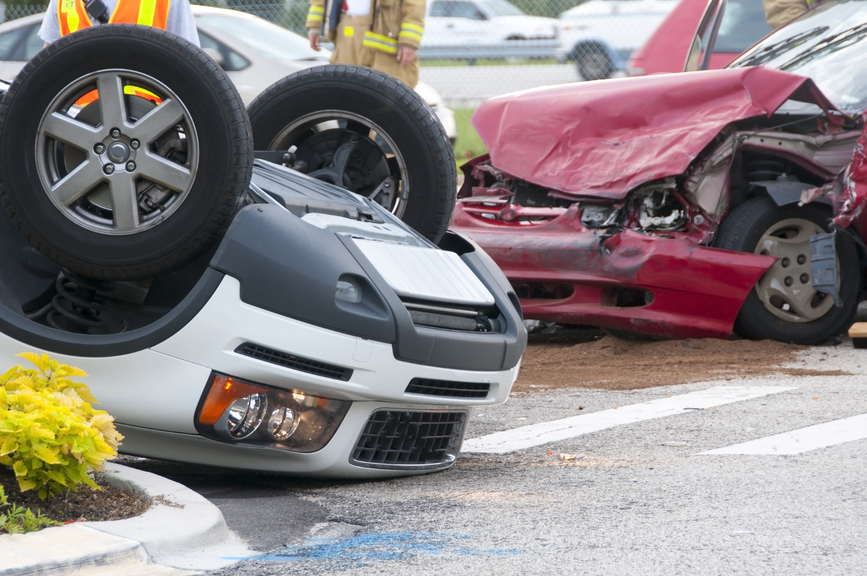
Motor vehicle accidents often leave people frustrated, distressed and injured. In the wake of traffic crashes, it’s common for survivors to have questions about their rights, their potential entitlements to compensation and how to move forward as they focus on their recovery.
To clarify these issues, below are some important answers to questions frequently asked by motor vehicle accident survivors.
A: There may be some clear indications that another driver caused the accident. For instance, if the other driver is cited or arrested by police following the crash, they likely violated the law; and that usually means that their negligence contributed (at least in part) to the accident.
If, however, police didn’t issue tickets or make arrests after the accident, other drivers may still be considered to have been at fault.
In fact, it is critical to point out here that, according to federal transportation officials,1 about 94 percent of all traffic accidents in the U.S. involve some type of human error – and, in many cases, those crash-causing mistakes involve some type of driver mistake or negligence (such as drunk or distracted driving).
Commenting on the issue of human error in auto wrecks, Dr. Mark Rosekind, an official with the National Highway Traffic Safety Administration (NHTSA), explained1 in February 2015:
It’s time to drive behavioral changes in traffic safety and that means taking on new initiatives and addressing persistent issues like drunk driving and failure to wear seat belts.
A: First of all, don’t wait to call your insurer after an accident. Your auto policy likely has some strict guidelines about how soon after a motor vehicle accident you are required to report that accident to the insurance company (and not complying with these terms could cause problems later).
When you do contact your insurance company to report the collision, only disclose the facts of the accident, such as:
Do not, however, get tricked into accepting any blame for the accident, and don’t try to make any assignment of blame.
What you say to your insurer could later be used to try to devalue your claim, so do your best to only mention the facts and nothing else. If you feel like you are being asked a question that may impact your claim or rights to compensation, you can simply say that you don’t know the answer or cannot answer that question at this time.
A: In general, no. It’s usually best to pursue any necessary medical treatments and/or vehicle repairs as soon as you can. That being said, however, it’s also important that you keep copies of all repair orders, bills, doctors’ reports and other documents associated with your post-accident medical care and/or your vehicle repairs as evidence for your case.
While such documents can provide critical evidence of the severity of the damage you and/or your vehicle sustained, they can also be essential to establishing how much compensation you may deserve for your injuries and losses.
A: It depends on where you live and where you intend to pursue financial recovery. That is because the statute of limitations2 for motor vehicle accident cases varies from state to state.
In Oregon, for instance, traffic accident survivors will have two years from the date of the crash to file a claim. Although this can seem like plenty of time – and although some people may want to deal with their injuries before filing a case, it’s important to NOT wait until the last minute to initiate a motor vehicle accident claim.
In fact, the sooner action is taken to proceed with a claim, the more evidence there will likely be to support that claim – and, as a result, the stronger those cases tend to be.
A: The specific value of a case will vary according to a number of factors, such as the damage and injuries caused by the accident.
In general, however, there are two types of damages that may be available to motor vehicle accident survivors, depending on the circumstance of their crash. These include:
Keep in mind that it’s best to speak with an experienced motor vehicle accident lawyer when you need specific answers regarding the value and/or strength of your case.
A: The length of time that it takes to resolve a motor vehicle accident case will depend on a number of different factors, including (but not exclusive to):
The only quick answer here is that you should expect to wait at least a few weeks and potentially even months for your compensation to come through. You should also know that:
A: If you have time to prepare for an initial consultation, do your best to get together all documents and evidence you have associated with the accident. Specifically, some of the important documents to bring with you can include:
A: The challenges or issues that can impact a particular case will vary from case to case. In general, however, some of the most common challenges that accident victims face when it comes to getting the compensation they deserve involve dealing with insurance companies, as insurers will usually be looking for ways to undercut compensation or deny claims entirely.
This is one of the main reasons that it’s so important to have an experienced motor vehicle attorney fighting for your rights and standing up to insurers on your behalf.
The information in this article is not, nor is it intended to be, legal advice.
If you happen to be injured in a motor vehicle accident in Oregon or Washington State, you are invited to contact the Savage Law Firm for help getting on the path to recovery and justice.
1: According to the National Highway Traffic Safety Administration (NHTSA) http://www.nhtsa.gov/About+NHTSA/Press+Releases/nhtsa-sees-roadway-deaths-increasing-02052016
2: According to the American Bar Association - http://www.americanbar.org/content/dam/aba/migrated/publiced/practical/books/family_legal_guide/chapter_13.authcheckdam.pdf
3: As defined by the Legal Information Institute of Cornell University: https://www.law.cornell.edu/wex/punitive_damages
